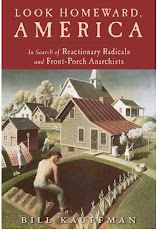
NEW LONDON, Conn. — Weeds, glass, bricks, pieces of pipe and shingle splinters have replaced the knot of aging homes at the site of the nation's most notorious eminent domain project.
There are a few signs of life: Feral cats glare at visitors from a miniature jungle of Queen Anne's lace, thistle and goldenrod. Gulls swoop between the lot's towering trees and the adjacent sewage treatment plant.
But what of the promised building boom that was supposed to come wrapped and ribboned with up to 3,169 new jobs and $1.2 million a year in tax revenues? They are noticeably missing.
Proponents of the ambitious plan blame the sour economy. Opponents call it a "poetic justice."
"They are getting what they deserve. They are going to get nothing," said Susette Kelo, the lead plaintiff in the landmark property rights case. "I don't think this is what the United States Supreme Court justices had in mind when they made this decision."
New London officials decided they needed Kelo's land and the surrounding 90 acres for a multimillion-dollar private development that included residential, hotel conference, research and development space and a new state park that would complement a new $350 million Pfizer pharmaceutical research facility.
Kelo and six other homeowners fought for years, all the way to the U.S. Supreme Court. In 2005, justices voted 5-4 against them, giving cities across the country the right to use eminent domain to take property for private development.
[...]
Kelo can see her old neighborhood from her new home, but she finds the view too painful to bear.
"Everything is different, but everything is like still the same," said Kelo, who works two jobs and has largely maintained a low profile since moving away. "You still have life to deal with every day of the week. I just don't have eminent domain to deal with every day of the week, even after I ate, slept and breathed it for 10 years."
Although her side lost, Kelo said she sees the wider ramifications of her property rights battle.
"In the end it was seven of us who fought like wild animals to save what we had," she said. "I think that though we ultimately didn't win for ourselves, it has brought attention to what they did to us, and if it can make it better for some other people so they don't lose their homes to a Dunkin' Donuts or a Wal-Mart, I think we did some good."
Scott Bullock, senior attorney for the Institute for Justice, argued Kelo's case before the Supreme Court. He calls "massive changes that have happened in the law and in the public consciousness" the "real legacy" of Kelo and the other plaintiffs.
The empty land means the city won a "hollow victory," he said.
"What cities should take from this is to run fleeing from what New London did and do economic development that is market-driven and incorporate properties of folks who are truly committed to their neighborhood and simply want to be a part of what happens," he said.
The entire article is at the Huffington Post
The 5 justices who voted to take citizens' property and give it to a developer:
Stevens, Kennedy, Souter, Ginsburg, and Breyer
The 4 justices who voted against the theft:
Rehnquist, Scalia, Thomas, and O'Connor
The real destructiveness of Kelo is the precedent it set. One egregious example is Didden v. Village of Port Chester. Didden's property would not have been condemned if not for their refusal to pay the "designated developer" the money he tried to extort from them.
from Volokh
>>The U.S. Supreme Court's 2005 decision in Kelo v. City of New London generated a backlash on both sides of the political spectrum..... Many of the rear-guard defenders of this ill-conceived decision insisted that abusive condemnations are an aberration in an otherwise sound planning process. They, it turns out, were wrong. Didden v. Village of Port Chester, a most unfortunate decision out of the 2d U.S. Circuit Court of Appeals, helps demonstrate the shortcomings of their optimistic view.
In 1999, the village of Port Chester, N.Y., established a "redevelopment area" and gave its designated developer, Gregg Wasser, a virtual blank check to condemn property within it. In 2003, property owners Bart Didden and Dominick Bologna approached Wasser for permission to build a CVS pharmacy on land they own inside the zone. His response: Either pay me $800,000 or give me a 50% partnership interest in the CVS project. Wasser threatened to have the local government condemn the land if his demands weren't met. When the owners refused to oblige, their property was condemned the next day.
Didden and Bologna challenged the condemnation in federal court, on the grounds that it was not for a "public use," as the Fifth Amendment requires. Their view, quite simply, was that out-and-out extortion does not qualify as a public use. Nonetheless, the 2d Circuit . . . upheld this flexing of political muscle.





No comments:
Post a Comment